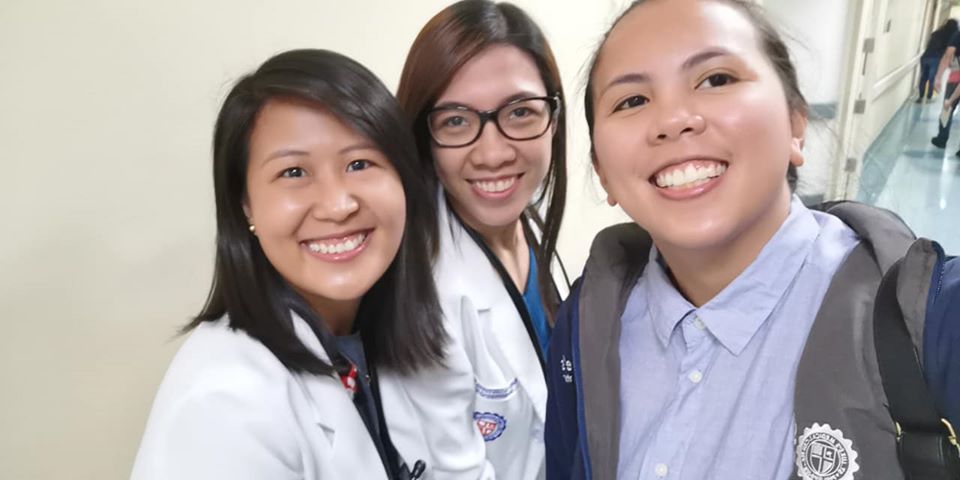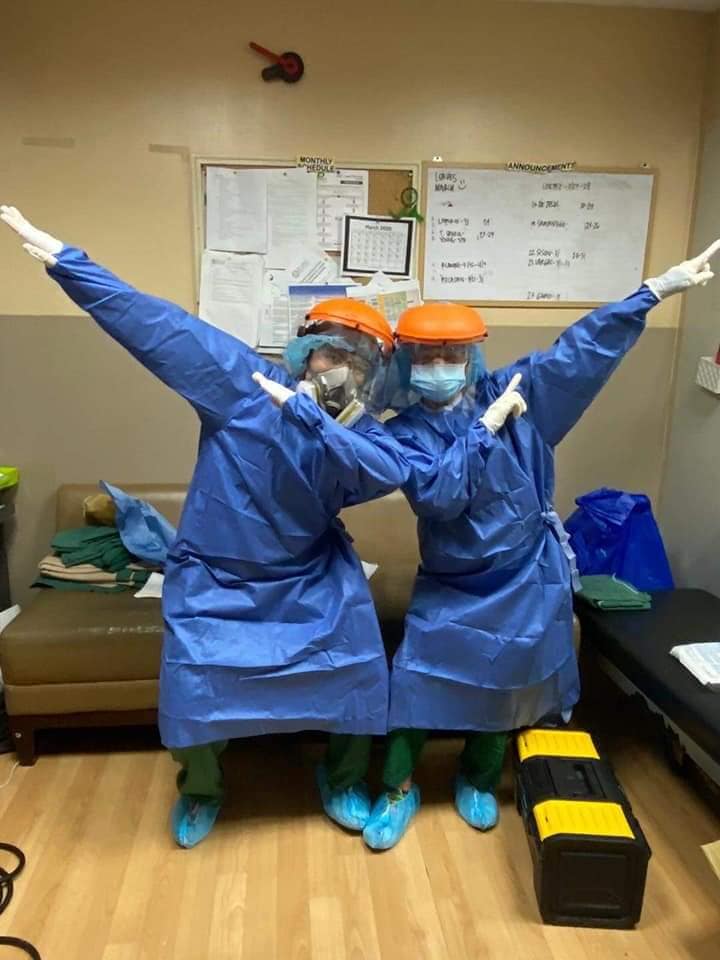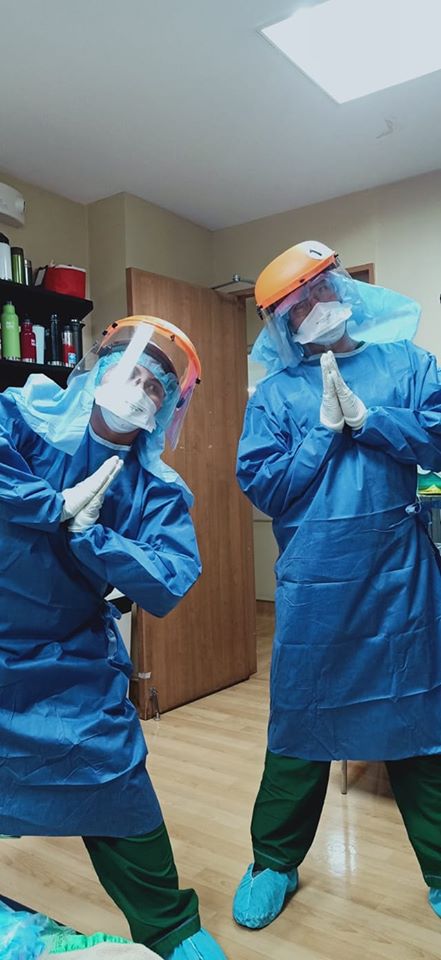
Dr. Lorena Patrice “Bugs” Caslib, one of countless doctors who’ve answered the call to serve, appeals to the government to allot more budget to the country’s healthcare system. There’s also a pressing need, she said, to expand the capacities of hospitals and to properly distribute medications and PPE kits.
BY ALEX Y. VERGARA
As a young resident doctor specializing in anesthesiology, Dr. Lorena Patrice “Bugs” Caslib of St. Luke’s Medical Center (SLMC), QC, like nearly all of her fellow doctors and healthcare workers, never imagined herself being right smack in the middle of a pandemic in her lifetime. But once the situation beckoned, she didn’t think twice in heeding its call.
“These diseases are things we only encounter in literature. It will soon become part of history that must not happen again,” she said through email.
As an anesthesiologist, her work, prior to the initial arrival of the first batch of COVID-19 cases in the Philippines, was mainly inside the OR. Because of the current and biggest health crisis the entire country and the world face, she was called by her superiors to put her expertise to another use: “secure people’s airway outside the operating room.”
We all know by now that among the most common, tell-tale symptoms of COVID-19 are high fever, incessant dry cough and difficulty breathing. Once it becomes too difficult for a person to breathe on his own, he would immediately require intubation, prior to being attached to a life-saving ventilator. That’s when Bugs and others like her come in.
“Whenever a (COVID-19) patient has a hard time breathing, our team is called on to intubate and help improve the patient’s condition,” she shared. “We treat anyone with respiratory symptoms as a case of COVID-19. Always COVID-19 unless tests later reveal otherwise.”
It took Bugs awhile to answer our questions since she always has her hands full. At one point during our exchanges, she had to excuse herself, as she was about to start intubating as many as five patients, one after another.
During normal times, or just before March rolled in, SLMC’s ER department could cater to a variety of cases, even mass casualties, she said. But these are not normal times. Like the Spanish flu pandemic in 1918, which killed millions of people the world over, this is a full-blown pandemic, which many hoped won’t happen again in our lifetime.

In response, SLMC-QC, one of the country’s best, has been forced to expand its capacity by setting up tents within its compound.
“As for the number of PUI (person under investigation) cases in our hospital, I’ve lost track already because of the constant influx of patients. Right now, we are leading (in attending to COVID-19 patients) with 63 confirmed cases.”
That was five days ago, when we finally received Bugs’ response. The number of COVID-19 positive cases at SLMC or any other hospital in the country, for that matter, is expectedly much higher these days, as the number of cases has yet to peak.
That the crisis is unprecedented in the modern-day annals of medicine is no exaggeration. It’s different from any emergency or mass casualty Bugs has come across.
“It’s a public health problem,” she said. “It’s not the usual mass trauma, which is controlled and only the victims are affected. This is a crisis that evolves exponentially per day. As each day passes, we can really feel it getting worse and not getting any better.”
Now more than ever, Bugs and her colleagues strictly adhere to established protocols. Chief among them is to ensure their own protection from the lethal coronavirus itself by properly suiting up in hospital-grade personal protective equipment (PPE). They have to since their very lives depend on it.
“Never attend to a patient without your PPE. We always make time to ensure we’re protected,” she said.
Working these days inside the ER, COVID wards and ICU feels quite “eerie and heavy.” Everyone is understandably stressed out because frontline people like her are not just thinking of their patients, but also of their health and their families.
Fair and proper scheduling at work is key if they are to minimize their exposure to the disease and recover from being up on their toes all day or, if they’re assigned to the graveyard shift, all night.
Everyone’s fervent wish is not to get sick as well as for the situation to improve soon. But since no one knows when it will end, they’ve had to fortify themselves physically, mentally and spiritually for the long road ahead.

Fear is a constant emotion that they all carry with them in the frontline. But instead of hindering them from preforming their tasks, fear of getting sick and catching the virus themselves motivate them to take care of themselves while they rest. These include eating well, taking their vitamins, getting enough sun and spending some time talking to family and friends over the phone or, say, through FaceTime.
“We need to take care of ourselves all the time,” she reiterated. “Because if we get sick, who would take care of our patients?”
“Anyone would be tense if they’re placed in our situation,” Bugs continued. “But this is our profession. I guess that’s why it takes so long for you to become a doctor. All that time allows you to think hard about what you’ll go through in the future.”
As Bugs has found out, even a crisis as dreadful as the coronavirus pandemic serves a purpose. Apart from helping forge her character by challenging her morals and principles, it made her realize her purpose in society and the true worth of her profession.
“It made me see that we’re all equal,” she said. “This virus doesn’t choose anyone. We are all equal.”
And with this renewed realization comes real-life sacrifices. Being exposed all day to sick patients with a strange, highly contagious disease means Bugs can no longer go home to her parents for the meantime.She hasn’t personally seen her family since the official lockdown, choosing to go home instead to her condo unit.
“I quarantine myself because I love my family and friends,” she said. “I can never forgive myself if any of them gets sick or succumbs to this illness.”
Like any dog lover, Bugs also finds joy watching videos of her dog sent to her from home. Thanks to their trusty smartphones, she and her friends and co-workers can chat during their off hours. That feeling of connection, knowing that everyone she cares for are okay, helps keep her sane.
Despite having developed nerves of steel, she also relies on counseling as a way to distress and relieve the pain of seeing “people, good people die alone.”
“I don’t know yet when this will end,” she said. “Every day, we encounter a new problem, a new glitch in the health system. This pandemic is new for everyone, and everything new will always be difficult. Working with and learning from each other is important if we are to formulate efficient programs and treatments that work for our patients.”
She appeals to everyone at home to be more selfless by doing their part. Since there’s no cure or vaccine yet, people can slow down its spread by seriously adhering to the basics—washing hands often, social distancing, staying home as much as possible and quarantining yourself if you’ve been exposed.
She also cites the importance of help the healthcare system gets from private and non-medical individuals and companies. There’s really a dearth of life-saving PPE, especially in government hospitals and small private hospitals. Donations are necessary.
Because of the lockdown, many healthcare workers are now having a hard time going to work. They would also need assistance in the form of temporary housing and transportation.
“Finally, I wish the government would allot more budget to our healthcare system. I wish they would expand (public) hospitals and distribute medications and kits properly,” she concluded.
Did you like what you’ve read? Please leave your comments and feedback in the comments section below.






